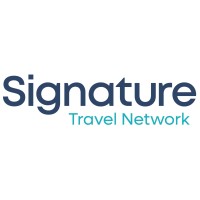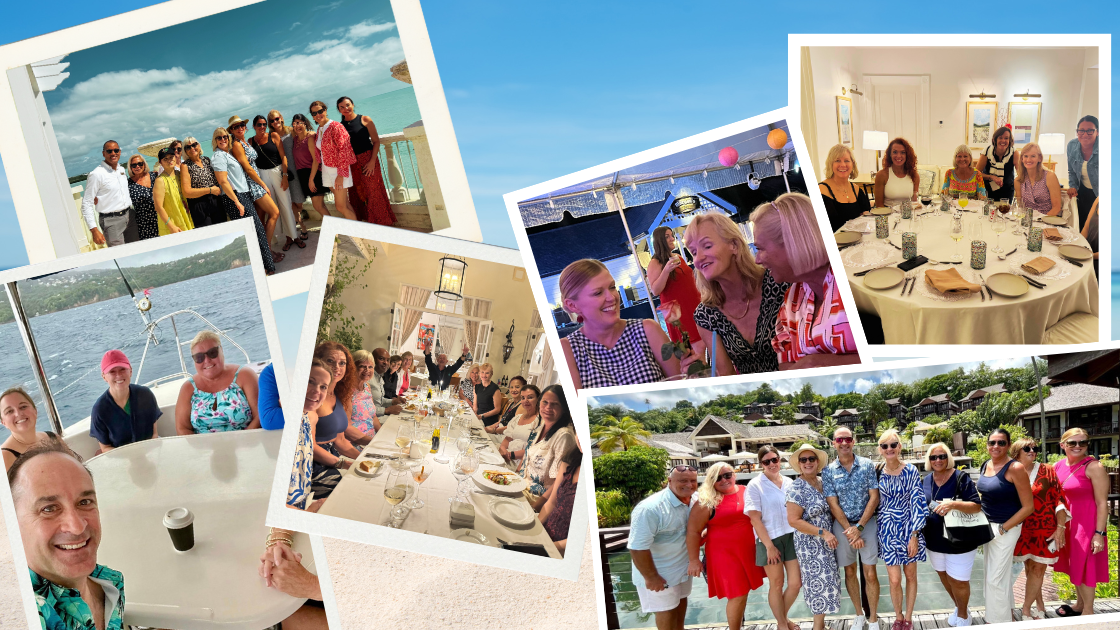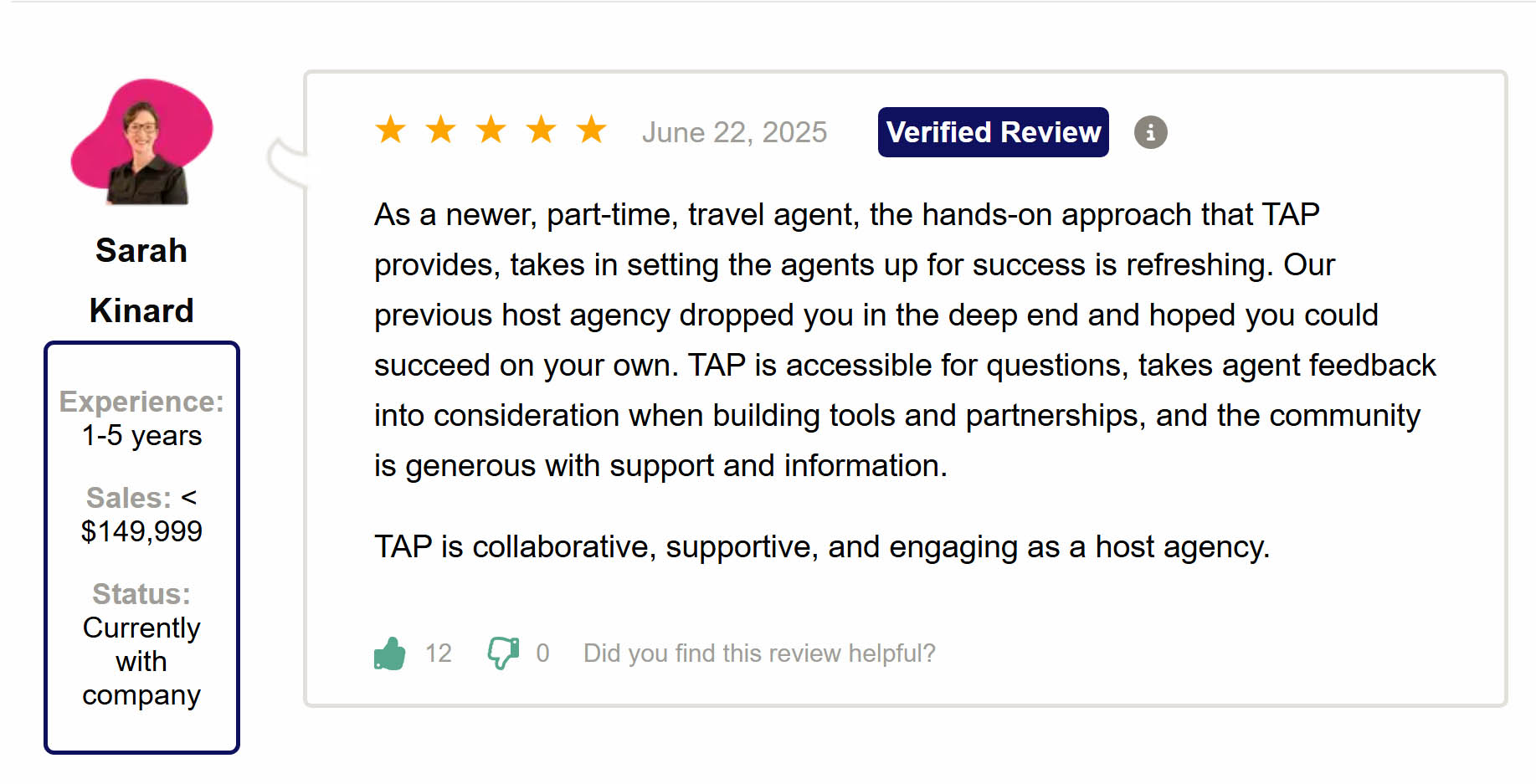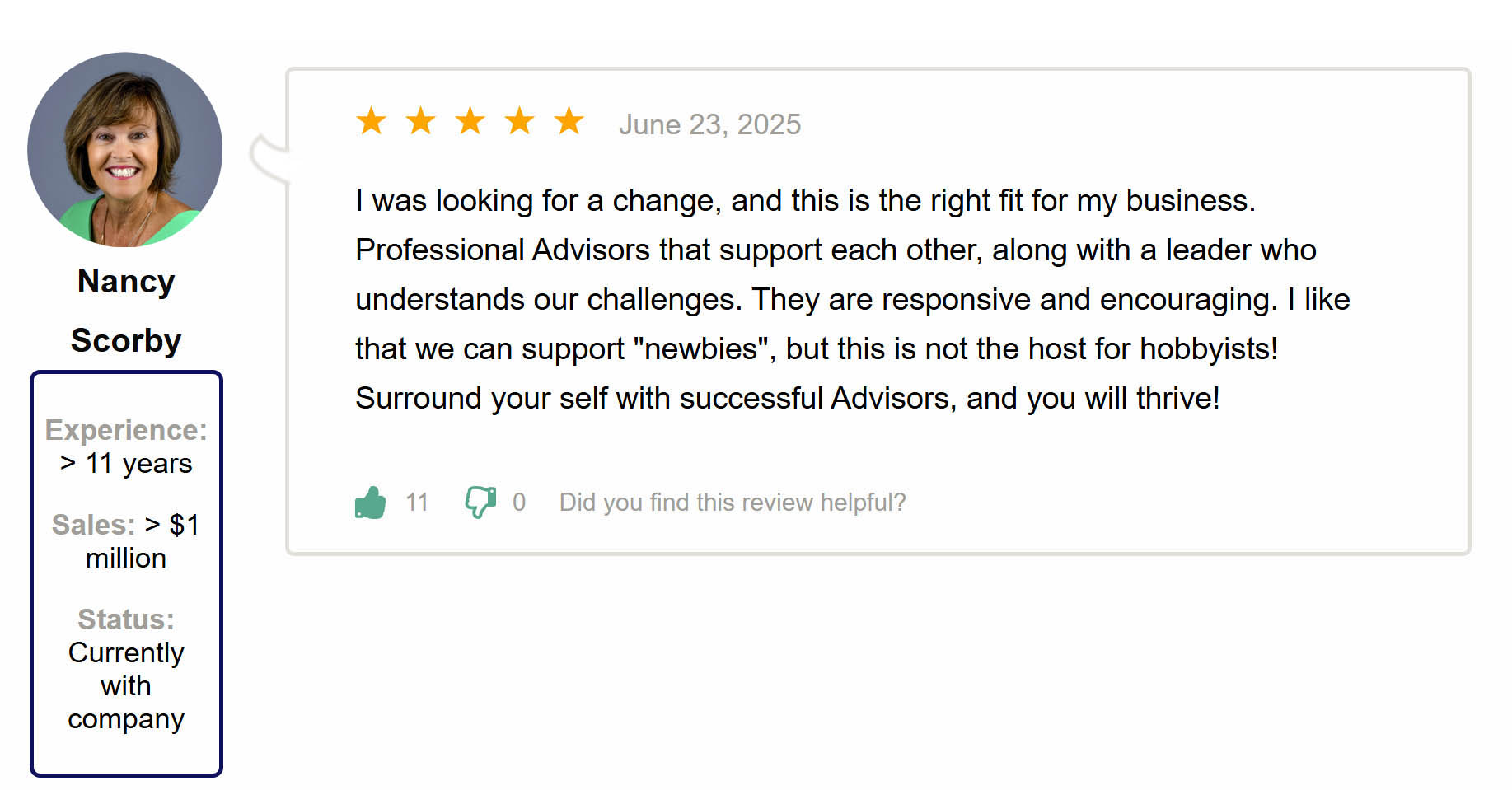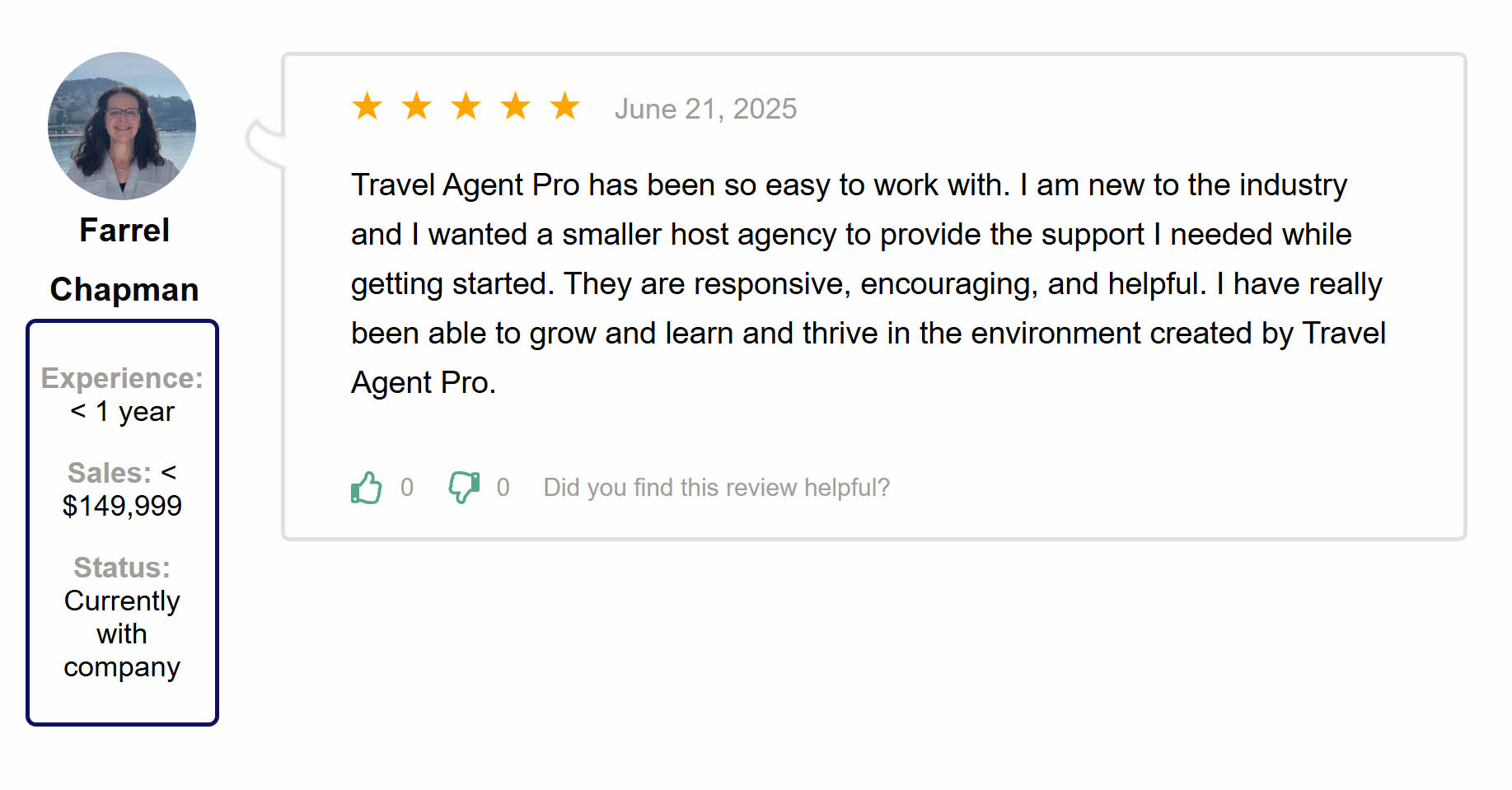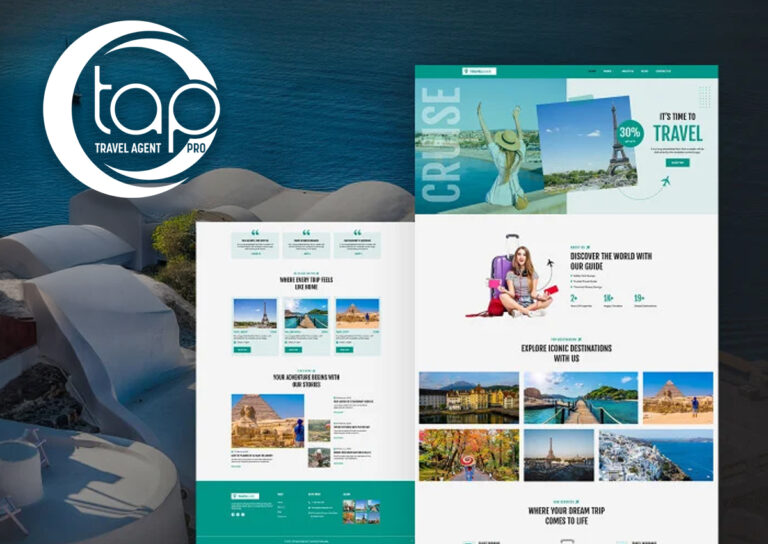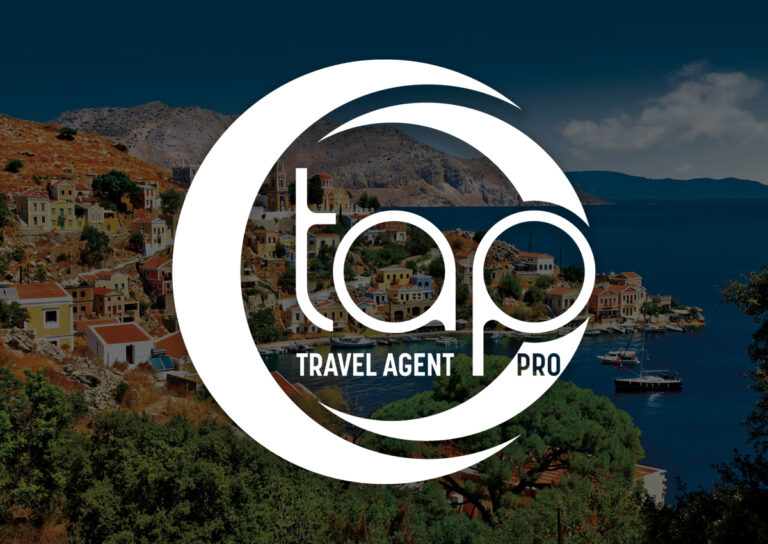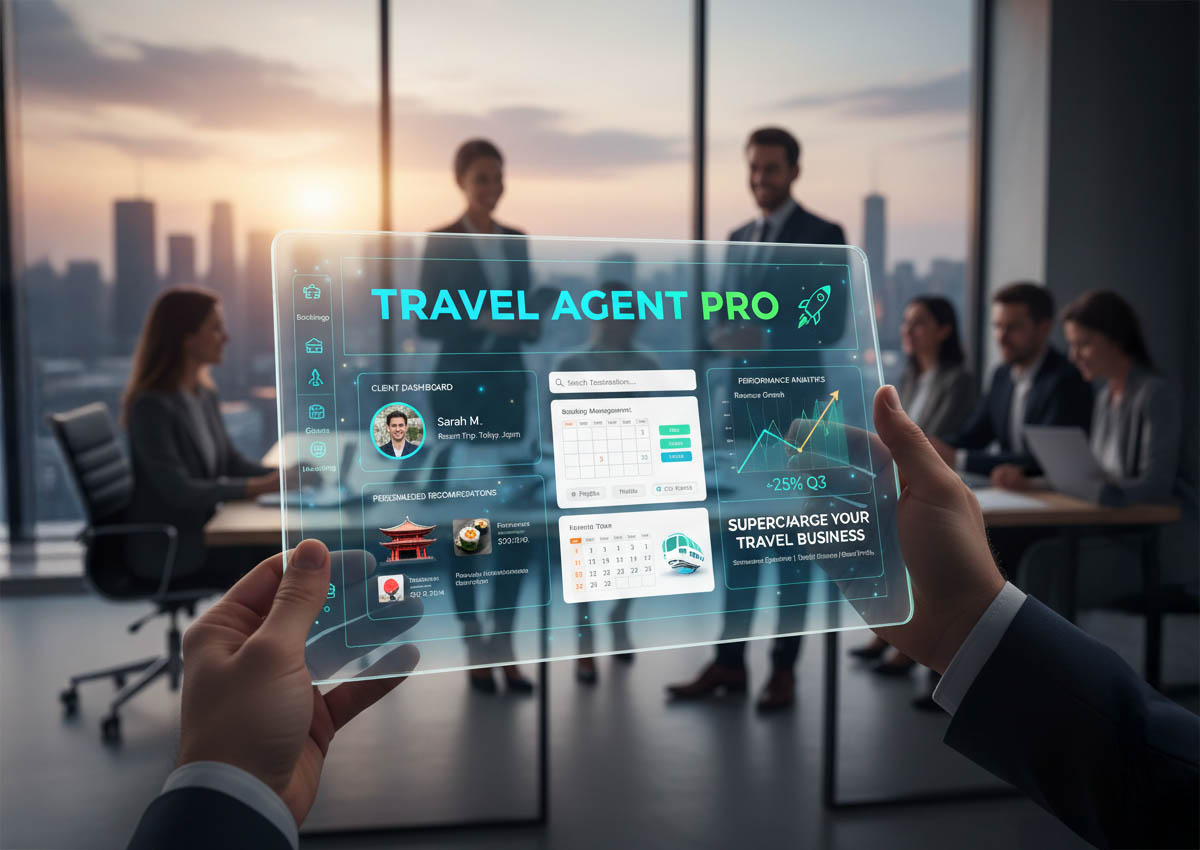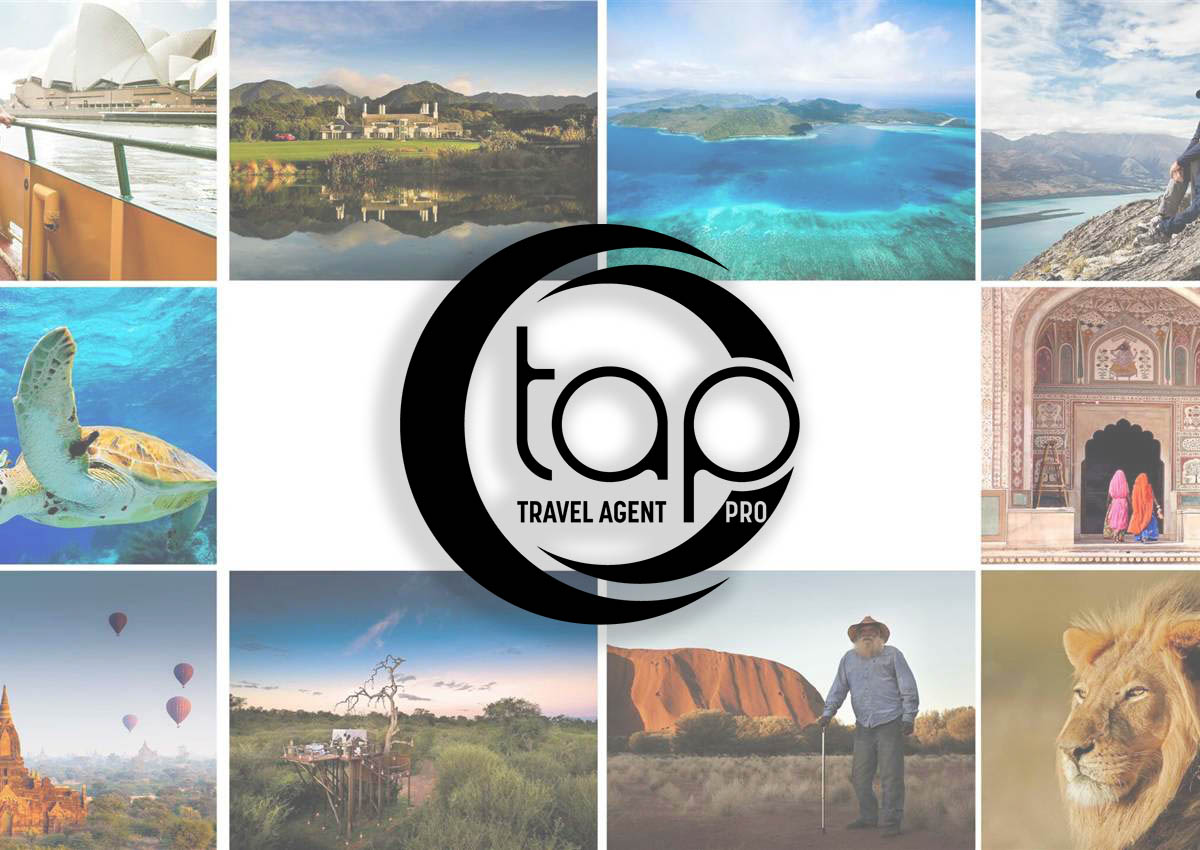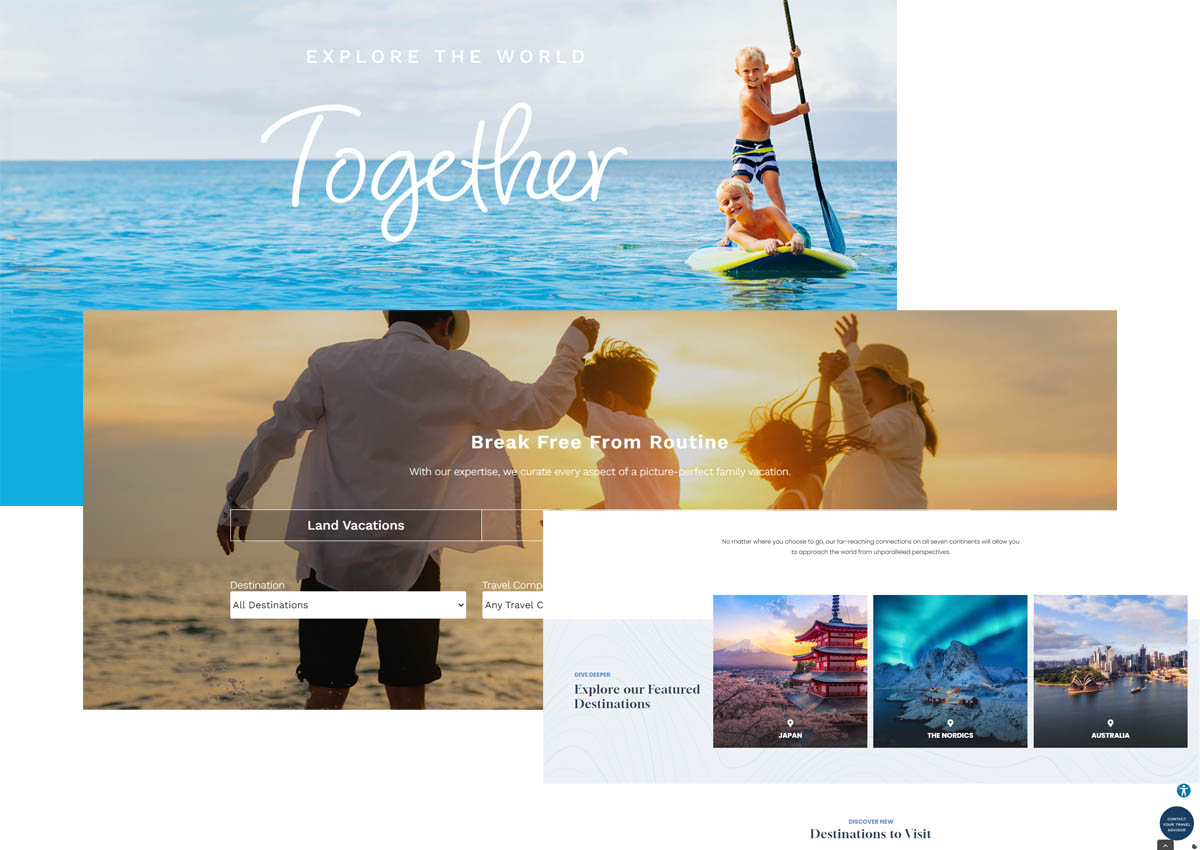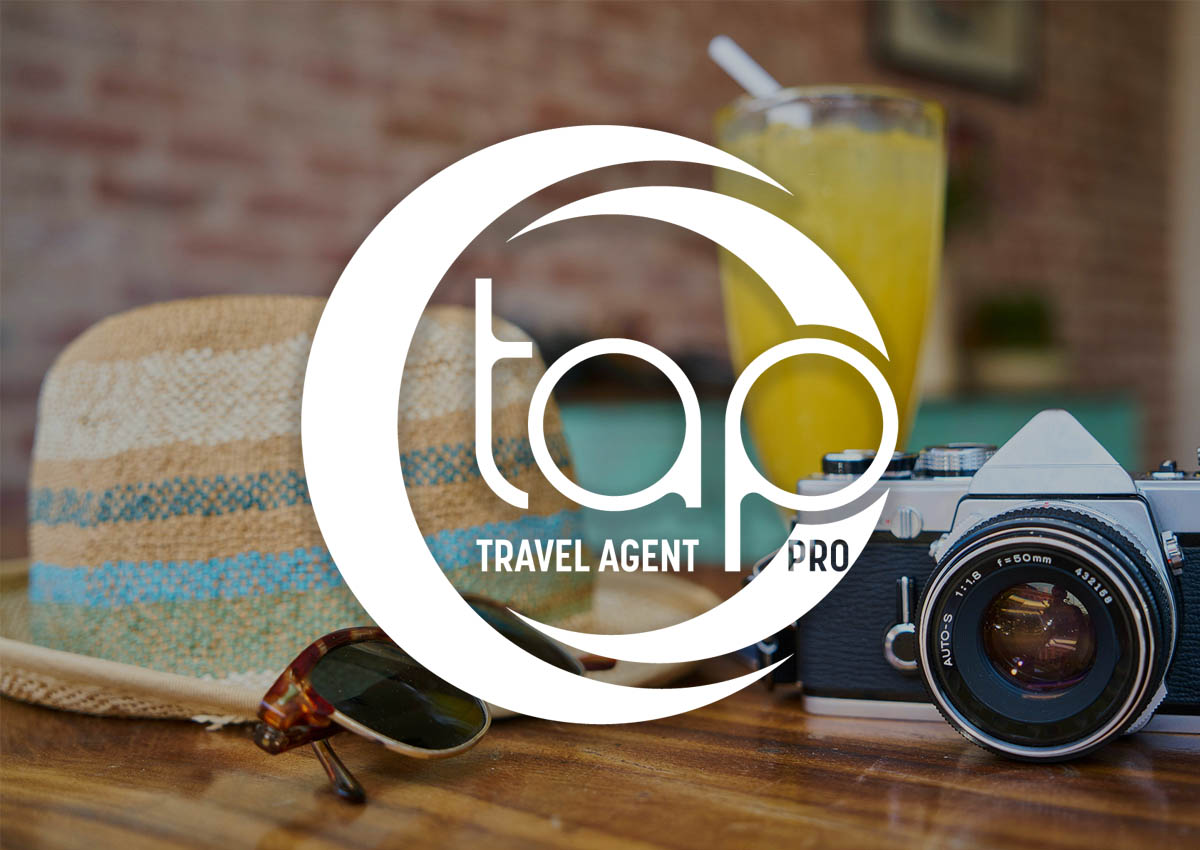Category :
Client Relations & SalesThe 7 most important "Fundamentals of Sales Success" when working with clients
To learn more techniques and how to create and grow your own travel business, sign-up to become a member today!
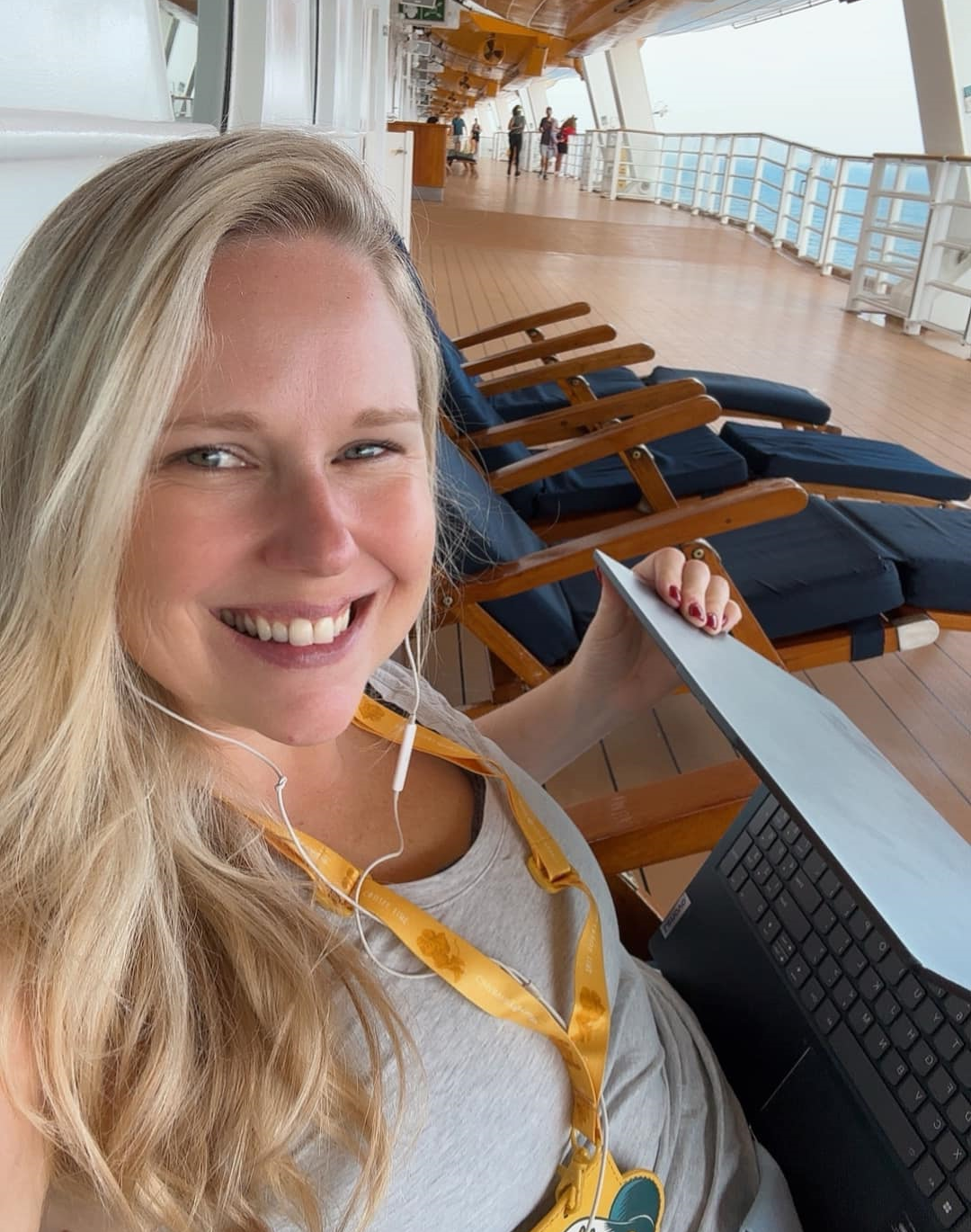
- Unlock your sales potential and build lasting client relationships by mastering the fundamentals of sales success, leading to increased bookings and revenue.
- Gain access to exclusive training courses like 'Sales Travel Expert' at Travel Agent Pro, designed to equip you with the skills to excel in the competitive travel industry.
- Join Travel Agent Pro to benefit from expert advice, personalized support, and a community of like-minded professionals dedicated to achieving customer service excellence.
As a travel agent, mastering the fundamentals of sales is crucial for building strong relationships with your clients and driving business growth.
At Travel Agent Pro, we have training courses to help you in your sales journey. These include: Sales Travel Expert, Fundamentals of Sales Success and Mastering Sales Success and other training courses to help you SELL SELL SELL!
Here are what we see as the seven most important fundamentals, to help travel agents achieve sales success:
-
Building Relationships: Establishing trust and rapport with clients is essential. Understand their needs, preferences, and travel dreams to create personalized experiences. Genuine connections lead to repeat business and referrals.
-
Product Knowledge: Deep knowledge of destinations, travel packages, accommodations, and activities allows you to confidently recommend options that best fit your clients' desires. Staying updated on industry trends and new offerings is key.
-
Effective Communication: Clear, concise, and timely communication is vital. Listen actively to clients' concerns and questions, and provide detailed, accurate information. Follow-up regularly to ensure client satisfaction and address any issues promptly.
-
Value Proposition: Clearly articulate the unique value you bring as a travel agent. Highlight the benefits of using your services, such as saving time, accessing exclusive deals, and receiving expert advice.
-
Problem-Solving Skills: Be prepared to handle challenges, such as flight cancellations, booking errors, or travel disruptions. Offer solutions quickly and efficiently to maintain client trust and satisfaction.
-
Sales Techniques: Utilize effective sales techniques, such as upselling and cross-selling. Suggest upgrades, add-ons, or complementary services that enhance the client's travel experience while increasing your revenue.
-
Customer Service Excellence: Provide exceptional service before, during, and after the trip. Ensure every detail is taken care of, respond promptly to inquiries, and follow up post-trip to gather feedback and build long-term relationships.
Implementing these fundamentals will help you succeed in selling travel and ensuring client satisfaction and loyalty.
Here's a deep dive into why these sales fundamentals are so important for your growth as a travel agent.

Building Relationships
Building strong client relationships is the cornerstone of sales success for travel agents.
Understanding Client Needs
Initial Consultation: Start with a thorough consultation to understand the client’s travel goals, preferences, budget, and past travel experiences. Ask open-ended questions to gather detailed information.
Personalization: Use the information gathered to tailor your recommendations. Clients appreciate when you remember their preferences, such as favorite types of accommodations, preferred travel styles, and specific interests like adventure, culture, or relaxation.
Building Trust
Transparency: Be honest about what you can deliver and any limitations. Transparent communication about costs, potential risks, and realistic expectations builds trust.
Reliability: Follow through on your promises. If you commit to providing information or making a booking by a certain time, ensure you do so. Reliability in your actions reinforces trust.
Creating a Rapport
Active Listening: Show genuine interest in what the client is saying. Make eye contact, take notes, and ask follow-up questions that demonstrate you’re paying attention to their needs and desires.
Empathy: Understand and acknowledge the client's feelings and concerns. Empathy helps in building a deeper connection and makes clients feel valued and understood.
Personalized Experiences
Custom Itineraries: Create itineraries that reflect the client's unique preferences and interests. Personalized touches, such as arranging a special dinner or a unique local experience, can make a big difference.
Anticipate Needs: Go beyond the basic requirements. Anticipate what clients might need or enjoy, such as suggesting travel insurance, packing tips, or local cultural insights.
Genuine Connections
Follow-Up: Stay in touch with clients after their trip to see how it went and gather feedback. This shows that you care about their entire travel experience, not just the booking process.
Stay Connected: Maintain regular communication through newsletters, holiday greetings, or occasional check-ins. Keeping your clients informed about new travel opportunities can lead to future bookings.
Building Long-Term Relationships
Loyalty Programs: Offer loyalty programs or special deals for repeat clients. This can encourage them to book through you again.
Referral Incentives: Encourage satisfied clients to refer friends and family by offering incentives, such as discounts on future bookings or small gifts.
The Outcome
Repeat Business: Clients who trust you and feel understood are more likely to book future trips through you.
Referrals: Satisfied clients will naturally refer you to others, expanding your client base and driving business growth without additional marketing costs.
By focusing on these aspects, you can build strong, lasting relationships with clients that not only enhance their travel experiences but also contribute significantly to your success as a travel agent.

Product Knowledge
Deep product knowledge is essential for travel agents to provide expert advice and tailor recommendations to clients' needs.
Deep Knowledge of Destinations
Comprehensive Understanding: Know the ins and outs of popular and niche destinations. This includes understanding the culture, climate, attractions, local customs, and travel logistics.
Personal Experience: Whenever possible, visit destinations yourself. First-hand experience is invaluable and allows you to offer genuine insights and personal anecdotes that can enhance a client’s travel plans.
Research and Education: Continuously research destinations through travel guides, blogs, webinars, and industry publications. Stay informed about new developments, such as changes in travel advisories, visa requirements, or local regulations.
Knowledge of Travel Packages
Package Components: Understand what each travel package includes, such as flights, accommodations, meals, tours, and transfers. Know the details so you can explain the value and benefits to clients.
Customization Options: Be aware of how packages can be customized to suit individual preferences. Knowing which aspects can be adjusted (e.g., extending stays, upgrading accommodations, adding activities) allows you to offer personalized options.
Value Assessment: Assess the value of different packages by comparing what is offered in relation to the price. This helps you recommend packages that offer the best experience within a client's budget.
Accommodations Knowledge
Types of Accommodations: Understand the different types of accommodations available, from luxury hotels and resorts to budget-friendly options, boutique hotels, and vacation rentals. Know the pros and cons of each type.
Amenities and Services: Be familiar with the amenities and services offered by various accommodations. This includes room types, dining options, recreational facilities, and special services like spa treatments or childcare.
Location Insights: Know the location of accommodations in relation to major attractions, transportation hubs, and local neighborhoods. This helps clients choose the best place to stay based on their itinerary and interests.
Activities and Experiences
Local Attractions: Have detailed knowledge of key attractions and activities at each destination. This includes historical sites, natural wonders, cultural experiences, and recreational activities.
Special Interests: Understand the specific interests and preferences of your clients. Whether they’re into adventure sports, culinary tours, or wellness retreats, being knowledgeable about relevant activities allows you to tailor recommendations.
Safety and Accessibility: Be informed about the safety and accessibility of activities, especially for clients with special needs or preferences. This ensures you can provide appropriate and safe options for all travelers.
Staying Updated on Industry Trends
Continuous Learning: Participate in webinars, industry conferences, and training programs offered by travel associations and suppliers. This helps you stay current with the latest trends, technologies, and best practices.
Networking: Engage with other travel professionals through industry forums, social media groups, and networking events. Sharing experiences and

Effective Communication
Effective communication is crucial for travel agents to build trust, ensure client satisfaction, and provide a seamless travel planning experience. Here’s an expanded look at the importance of effective communication and how to achieve it:
Clear Communication
Simple Language: Use clear and straightforward language when explaining travel options, booking details, and itineraries. Avoid jargon and ensure that clients understand every aspect of their travel plans.
Detailed Information: Provide comprehensive details about destinations, travel packages, accommodations, and activities. Include information on costs, inclusions, exclusions, and any other relevant details.
Visual Aids: Use visual aids like brochures, maps, and digital presentations to enhance understanding. Visuals can help clients better grasp the details of their trip.
Concise Communication
Summarize Key Points: Highlight the main points of your communication to avoid overwhelming clients with too much information at once. Summaries help clients retain the most important details.
Prioritize Information: Focus on the most critical information first, such as booking deadlines, payment schedules, and essential travel documents. Ensure clients know what requires immediate attention.
Timely Communication
Prompt Responses: Respond to client inquiries and requests as quickly as possible. Prompt responses demonstrate your commitment to excellent service and help build trust.
Regular Updates: Keep clients informed about the status of their bookings, any changes to their itinerary, and important deadlines. Regular updates ensure clients feel secure and well-informed.
Active Listening
Pay Attention: Focus entirely on the client during conversations. Avoid distractions and show that you are genuinely interested in their needs and concerns.
Ask Clarifying Questions: If you’re unsure about something a client says, ask clarifying questions. This helps avoid misunderstandings and ensures you fully understand their preferences and concerns.
Reflect and Summarize: Reflect back what the client has said and summarize their main points to confirm understanding. This shows that you are listening and helps validate their concerns.
Providing Detailed and Accurate Information
Research Thoroughly: Ensure that the information you provide is accurate and up-to-date. Double-check details like travel restrictions, visa requirements, and accommodation availability.
Be Honest: If you don’t know the answer to a client’s question, be honest about it and commit to finding the information quickly. This builds trust and shows reliability.
Follow-Up Regularly
Pre-Trip Follow-Up: Contact clients before their trip to confirm details, answer any last-minute questions, and ensure they have everything they need.
During Trip Support: Provide a way for clients to reach you during their trip for any issues or questions that may arise. This can be through phone, email, or a dedicated messaging service.
Post-Trip Follow-Up: After the trip, reach out to gather feedback and ensure everything went smoothly. This helps you learn and improve your services and shows clients that you care about their experience.
Addressing Issues Promptly
Immediate Action: When issues arise, address them as quickly as possible. Whether it’s a booking error or a travel disruption, prompt action can mitigate negative impacts and maintain client satisfaction.
Effective Problem-Solving: Use your problem-solving skills to find practical solutions to issues. Keep clients informed throughout the process and provide updates on how you are resolving the problem.
The Outcome
Enhanced Client Trust: Effective communication builds trust and confidence in your services, making clients more likely to book with you again and refer others.
Improved Client Satisfaction: Clients who feel heard and well-informed are more satisfied with their overall travel experience, leading to positive reviews and repeat business.
Stronger Client Relationships: Regular, clear, and empathetic communication helps build strong, lasting relationships with clients, fostering loyalty and long-term success.
By mastering clear, concise, and timely communication, actively listening to clients, providing accurate information, and following up regularly, you can significantly enhance client satisfaction and drive business growth as a travel agent.
Become a Travel Agent: Unleash Your Full Potential
Ready for a career that's as fulfilling as it is rewarding? Becoming a travel agent with TAP means building a business around your passion for travel.

Value Proposition
The value proposition is a critical aspect of your sales strategy as a travel agent. It communicates why clients should choose your services over booking travel on their own or through competitors. Here’s an expanded look at how to clearly articulate your unique value proposition:
Unique Value of a Travel Agent
Personalized Service: Emphasize your ability to offer tailored travel experiences based on each client's preferences, interests, and budget. Highlight your efforts to understand their needs and curate bespoke itineraries.
Expert Advice: Your extensive knowledge of destinations, travel logistics, and industry trends allows you to provide expert recommendations. Clients benefit from your insights and can avoid common travel pitfalls.
Exclusive Deals: Through your industry connections and partnerships, you can access exclusive deals, discounts, and upgrades that are not available to the general public. This can include special rates on hotels, flights, and packages.
Time Savings: Planning a trip can be time-consuming and overwhelming. As a travel agent, you handle all the research, bookings, and details, saving clients hours of effort and ensuring a smooth travel experience.
Support and Assistance: Offer comprehensive support before, during, and after the trip. This includes resolving any issues that arise, making changes to bookings, and providing valuable local advice and tips.
Added Value: Explain how your services add value beyond just booking. This can include personalized travel guides, arranging special experiences, and providing packing lists or travel tips.
Communicating Your Value Proposition
Client Testimonials: Share testimonials and success stories from satisfied clients. Real-life examples of how you enhanced their travel experiences can be very persuasive.
Clear Messaging: Use clear and compelling language to communicate your value proposition across all marketing channels, including your website, social media, and promotional materials.
Demonstrate Expertise: Regularly share your knowledge through blogs, social media posts, newsletters, and webinars. This not only positions you as an expert but also provides valuable information to potential clients.
Visual Content: Use high-quality images and videos to showcase the destinations and experiences you offer. Visual content can be very engaging and help clients imagine themselves on the trips you plan.
Benefits of Using Your Services
Customized Itineraries: Highlight your ability to create personalized itineraries that cater to the client's specific interests and needs, ensuring a unique and memorable travel experience.
Stress-Free Planning: Emphasize how your services alleviate the stress of planning and booking travel. Clients can relax knowing all details are handled by a professional.
Insider Access: Mention any insider access or VIP experiences you can arrange, such as private tours, exclusive events, or preferred seating.
Cost-Effectiveness: Explain how your services can actually save clients money through exclusive deals and avoiding costly mistakes. Even if there is a service fee, the overall value and savings can outweigh the cost.
Comprehensive Support: Highlight your commitment to providing support at every stage of the trip. This includes emergency assistance, making adjustments on the fly, and providing local recommendations.
Enhanced Travel Experience: Emphasize how your services enhance the overall travel experience, from seamless logistics to unique, personalized touches that clients might not achieve on their own.
Examples of Value Propositions
Luxury Travel: "Experience the world in luxury with our bespoke travel services. From exclusive accommodations to personalized itineraries, we ensure every detail is tailored to your desires, providing an unparalleled travel experience."
Adventure Travel: "Unlock your adventurous spirit with our expertly curated travel packages. Whether it's trekking through remote landscapes or diving into the deep blue sea, we provide the expertise and support to make your adventure unforgettable."
Family Travel: "Create lasting memories with our family-friendly travel planning services. We take care of all the details, from kid-friendly accommodations to activities that everyone will love, ensuring a stress-free and enjoyable vacation for the whole family."
The Outcome
Increased Client Acquisition: A compelling value proposition attracts new clients who see the clear benefits of using your services over booking on their own.
Client Retention: Clearly communicating your value helps build strong relationships and loyalty, encouraging repeat business.
Referrals and Growth: Satisfied clients who understand and appreciate your value are more likely to refer your services to friends and family, driving business growth.
By clearly articulating your unique value proposition, you can effectively communicate the benefits of your services, differentiate yourself from competitors, and attract and retain clients.
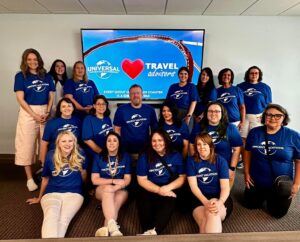
Problem-Solving Skills
Problem-solving skills are essential for travel agents to navigate the inevitable challenges that arise in the travel industry. Being prepared to handle these issues swiftly and effectively can significantly enhance client trust and satisfaction. Here’s an expanded look at how to develop and apply strong problem-solving skills:
Anticipating Potential Issues
Proactive Planning: Anticipate common travel issues, such as flight cancellations, booking errors, or travel disruptions. Have contingency plans in place for different scenarios.
Client Briefing: Inform clients about potential challenges they might face and provide tips on how to handle them. This can include advice on packing, navigating airports, and what to do if a flight is delayed or canceled.
Handling Flight Cancellations
Immediate Action: When a flight is canceled, act quickly to rebook clients on the next available flight. Use your connections with airlines to find the best possible alternatives.
Alternative Arrangements: If immediate rebooking isn’t possible, arrange for accommodations, transportation, and meals for your clients. Keeping them comfortable and informed can ease their frustration.
Communication: Keep clients informed about what’s happening and what steps you’re taking to resolve the issue. Regular updates help reduce anxiety and maintain trust.
Managing Booking Errors
Double-Check Details: Before finalizing bookings, double-check all details to prevent errors. This includes names, dates, and specific client preferences.
Correcting Mistakes: If an error is discovered, contact the service provider immediately to correct it. Use your industry relationships to expedite corrections and minimize inconvenience to the client.
Client Assurance: Apologize for any inconvenience caused and assure the client that the issue is being resolved. Offer compensation or additional services if appropriate to maintain goodwill.
Dealing with Travel Disruptions
Monitoring: Stay informed about potential disruptions, such as weather events, political unrest, or strikes. Use this information to proactively adjust travel plans if necessary.
Alternative Plans: Have backup plans ready for various scenarios. This can include alternative routes, different accommodations, or rescheduling activities.
Emergency Support: Provide clients with emergency contact information and ensure they can reach you at any time. Offer clear instructions on what to do in case of a disruption.
Quick and Efficient Solutions
Decision-Making: Develop the ability to make quick, informed decisions under pressure. Assess the situation, consider the options, and choose the best course of action for the client.
Resourcefulness: Utilize all available resources to find solutions. This includes leveraging your network of industry contacts, using technology tools, and accessing emergency services if needed.
Client Collaboration: Involve clients in the decision-making process when appropriate. Explain the options and let them choose the solution that best meets their needs and preferences.
Maintaining Client Trust
Transparency: Be honest with clients about the situation and what you’re doing to resolve it. Transparency builds trust and reassures clients that you are handling the issue professionally.
Empathy: Show empathy and understanding. Acknowledge the inconvenience or stress the situation may cause and express your commitment to resolving it.
Follow-Up: After resolving the issue, follow up with clients to ensure they are satisfied with the outcome. Gather feedback on how the situation was handled and use it to improve future service.
Continuous Improvement
Learn from Experience: Analyze each problem-solving experience to identify what worked well and what could be improved. Use these insights to refine your approach and prevent similar issues in the future.
Training and Development: Participate in ongoing training and professional development to enhance your problem-solving skills. Learn from industry experts and stay updated on best practices.
The Outcome
Enhanced Client Satisfaction: Efficiently resolving issues enhances overall client satisfaction and contributes to a positive travel experience.
Increased Client Loyalty: Clients who see that you can handle problems effectively are more likely to trust you with future travel plans and remain loyal to your services.
Positive Reputation: Successfully managing travel challenges builds your reputation as a reliable and resourceful travel agent, attracting more clients through positive reviews and referrals.
By developing strong problem-solving skills, you can confidently handle the challenges that arise in the travel industry, maintain client trust, and ensure a high level of satisfaction.

Sales Techniques
Sales techniques are essential for travel agents to maximize revenue while enhancing the client's travel experience. Utilizing effective sales techniques, such as upselling and cross-selling, can significantly contribute to achieving these goals. Here’s an expanded look at how to implement these techniques:
Upselling
Identify Opportunities: Look for opportunities to offer premium options that provide added value to clients. This could include upgraded accommodations, premium flight seats, or luxury transportation.
Highlight Benefits: Clearly communicate the benefits of the upgrade. Explain how it can enhance the travel experience, such as more comfort, better amenities, or exclusive access to certain services.
Use Visuals: Use high-quality images and videos to showcase the upgraded options. Visuals can help clients imagine the enhanced experience and make the upgrade more appealing.
Personalized Recommendations: Tailor your upsell suggestions to the client's preferences and needs. For example, suggest a room with a view for a couple on a romantic getaway or a larger vehicle for a family vacation.
Timing: Introduce the upsell at the right time in the booking process. Avoid overwhelming clients with options too early, but also don't wait until the last minute when they might have already made up their mind.
Cross-Selling
Complementary Services: Suggest additional services that complement the main booking. This can include travel insurance, car rentals, guided tours, or special dining experiences.
Bundling: Create bundled packages that combine the main service with complementary add-ons. Offer these bundles at a discounted rate compared to purchasing each item separately, providing added value to the client.
Highlight Convenience: Emphasize the convenience of booking additional services through you. Explain how it saves them time and ensures all their travel needs are coordinated seamlessly.
Client Needs: Understand the client's travel goals and preferences. Use this information to recommend relevant add-ons that enhance their overall experience.
Exclusive Offers: If possible, offer exclusive deals or limited-time promotions on add-ons. This can create a sense of urgency and encourage clients to take advantage of the offer.
Building Rapport
Active Listening: Pay close attention to what clients say about their travel preferences, concerns, and desires. Use this information to tailor your recommendations.
Personal Touch: Personalize your communication and suggestions based on the client's interests and previous travel experiences. This shows you value their preferences and enhances the trust factor.
Follow-Up: After making a sale, follow up with clients to ensure they are satisfied with their purchase and to offer additional services if needed. This can lead to repeat business and referrals.
Effective Communication
Clear and Persuasive Language: Use clear and persuasive language when discussing upsell and cross-sell options. Highlight the benefits and value these additional services bring to the client's travel experience.
Transparency: Be transparent about costs and what is included in the upgrades or add-ons. Clients appreciate honesty and are more likely to trust your recommendations if they feel there are no hidden fees.
Testimonials and Reviews: Share testimonials and reviews from other clients who have opted for the upgrades or add-ons. Real-life experiences can be very convincing.
Leveraging Technology
CRM Systems: Use customer relationship management (CRM) systems to track client preferences, past purchases, and interactions. This data helps in making personalized recommendations and identifying upsell and cross-sell opportunities.
Email Marketing: Send targeted email campaigns to clients, highlighting special offers, upgrades, and complementary services. Personalize these emails based on the client's travel history and preferences.
Online Booking Tools: If you have an online booking platform, incorporate upsell and cross-sell options into the booking process. Make it easy for clients to add these services to their purchase with a few clicks.
Training and Development
Sales Training: Regularly participate in sales training to enhance your skills and stay updated on the latest techniques and strategies.
Product Knowledge: Continuously improve your knowledge of the products and services you offer. The more you know, the better you can explain the benefits and value to clients.
Feedback and Improvement: Seek feedback from clients about your upselling and cross-selling efforts. Use this feedback to refine your approach and improve your techniques.
The Outcome
Increased Revenue: Effective upselling and cross-selling increase your overall revenue by maximizing the value of each booking.
Enhanced Client Experience: Clients benefit from enhanced travel experiences through added comfort, convenience, and exclusive services.
Client Satisfaction and Loyalty: Satisfied clients are more likely to return for future travel needs and refer your services to others, contributing to long-term business growth.
By utilizing effective sales techniques such as upselling and cross-selling, you can increase your revenue while providing clients with a superior travel experience.
For Both Aspiring and Experienced Travel Advisors
Build a travel business doing what you love - on your own terms. Start booking trips the day you join, with a best-in-class education curriculum developed by industry experts.

Customer Service Excellence
Customer service excellence is the cornerstone of a successful travel agency. Providing exceptional service before, during, and after the trip ensures that clients feel valued and well-cared for, leading to repeat business and referrals. Here’s an expanded look at how to achieve customer service excellence:
Before the Trip
Initial Consultation
- Understanding Needs: Spend time understanding the client's preferences, budget, travel history, and specific needs.
- Detailed Proposals: Provide detailed travel proposals tailored to the client's preferences, including multiple options for destinations, accommodations, and activities.
Responsive Communication
- Prompt Responses: Answer inquiries quickly and thoroughly, demonstrating your commitment to excellent service.
- Clear Information: Provide clear, concise, and comprehensive information about travel options, costs, and itineraries.
Planning and Booking
- Attention to Detail: Double-check all booking details, from flights and hotels to activities and transfers, to ensure accuracy.
- Special Requests: Handle any special requests or accommodations, such as dietary needs, accessibility requirements, or specific room preferences.
Pre-Trip Preparation
- Travel Documents: Ensure clients have all necessary travel documents, such as passports, visas, and tickets, well in advance.
- Itinerary Review: Review the final itinerary with the client, highlighting key details and answering any last-minute questions.
- Travel Tips: Provide useful travel tips, packing lists, and destination guides to help clients prepare for their trip.
During the Trip
24/7
Learn more about this by signing up as a member, today! Travel Agent Pro Application Form.
To learn more techniques and how to grow your travel business, read more on our Pathfinder Series.
Apply Now!

